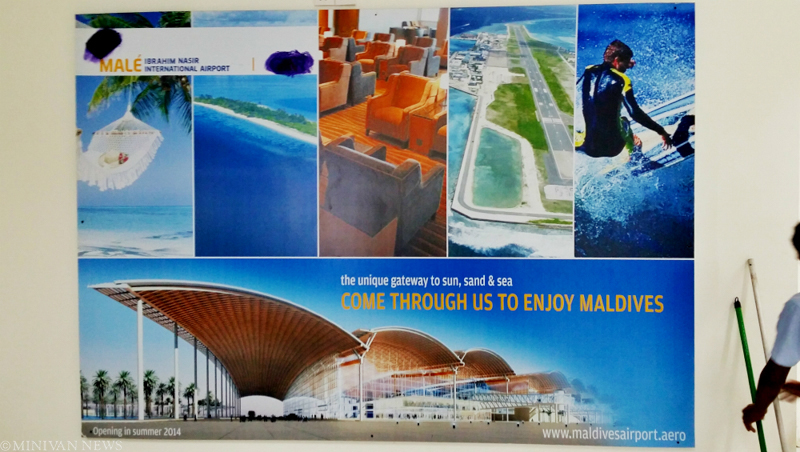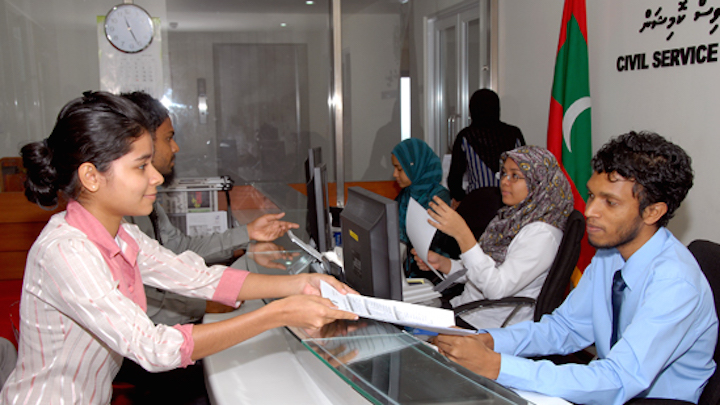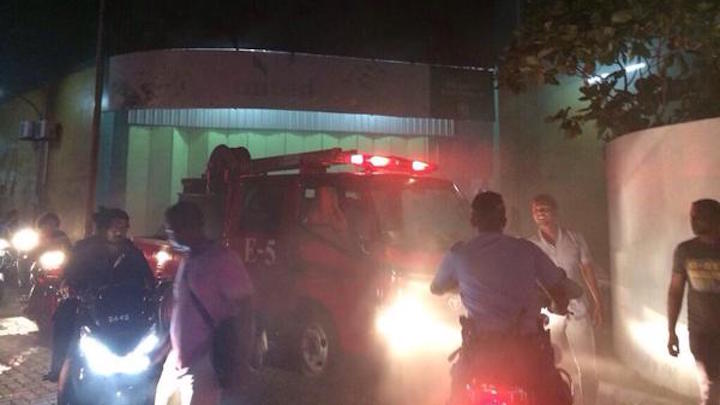A Singaporean arbitration tribunal has ruled that the Maldivian government does not have to pay US$160 million loaned by the India’s Axis Bank for airport development in 2011, Minivan News has learned.
The Axis Bank sought repayment of the loan after the government abruptly took over the airport from Indian developer GMR in December 2012.
The bank said the government had guaranteed the loan issued to GMR and was liable in the event of an early termination or an expropriation of the airport.
After concluding hearings in March, the tribunal ruled on Friday that neither the government nor the state-owned Maldives Airports Company Limited (MACL) was responsible for the loan.
The tribunal also ordered the Axis Bank to pay the government and MACL’s legal fees for the arbitration process.
The bank had claimed US$170 million from the government, including US$10 million in interest and fees.
The GMR Group is meanwhile claiming US$803 million from the Maldives in a separate arbitration after the tribunal ruled in June last year that the government had “wrongfully” terminated the concession agreement.
In the first phase of the arbitration process, the tribunal found the concession agreement to have been “valid and binding.” The government and MACL were “”jointly and severally liable in damages to [GMR Malé International Airport Limited] for loss caused by wrongful repudiation of the agreement”.
The tribunal is yet to determine the amount owed to the Indian infrastructure giant as compensation. A verdict is expected in mid-2015.
President Abdulla Yameen has previously said that the Maldives will not have to pay more than US$300 million to GMR, which would be “manageable” for the MACL.
Arbitration
According to submissions made to the tribunal by the Axis bank and the government, obtained by Minivan News, the government argued that declaring the concession invalid from the outset does not amount to an early termination.
While the tribunal in the separate GMR arbitration determined that the termination of the GMR deal was “wrongful repudiation” (refusal to honor the contract), the government contended that “repudiation” alone does not lead to termination.
The government blamed GMR for terminating the concession agreement by “accepting” the repudiation, and said no force was used in the takeover.
Axis bank is “perfectly entitled to recover the loaned sums from the party to which it loaned them,” lawyers representing the Maldives argued.
The bank had dismissed the arguments as “highly semantic” and noted that the Maldives civil aviation authority had cancelled GMR’s aerodrome certificate from December 7, 2012, making it “legally impossible for GMR to continue to operate the airport.”
The government also accused the Axis Bank and GMR of colluding to extract large sums of money, claiming the infrastructure giant had paid for the bank’s litigation fees for the separate arbitration process.
As an Indian Bank for whom GMR was a major customer, the Axis Bank wanted to cement its relationship with GMR “by assisting it in making a very substantial claim for damages,” the government alleged.
The government claimed the bank had been involved in an “attempt to secure political pressure from the Indian government” to prevent cancellation of the deal.
The Axis Bank in 2012 told the government it would “approach the regulatory-diplomatic authorities in India” after GMR was ordered to handover the airport, the government said.
GMR also wrote to the prime minister in August 2012 “requesting intervention by the Indian government, when it was clear that future of the concession agreement was in jeopardy,” the government said.




